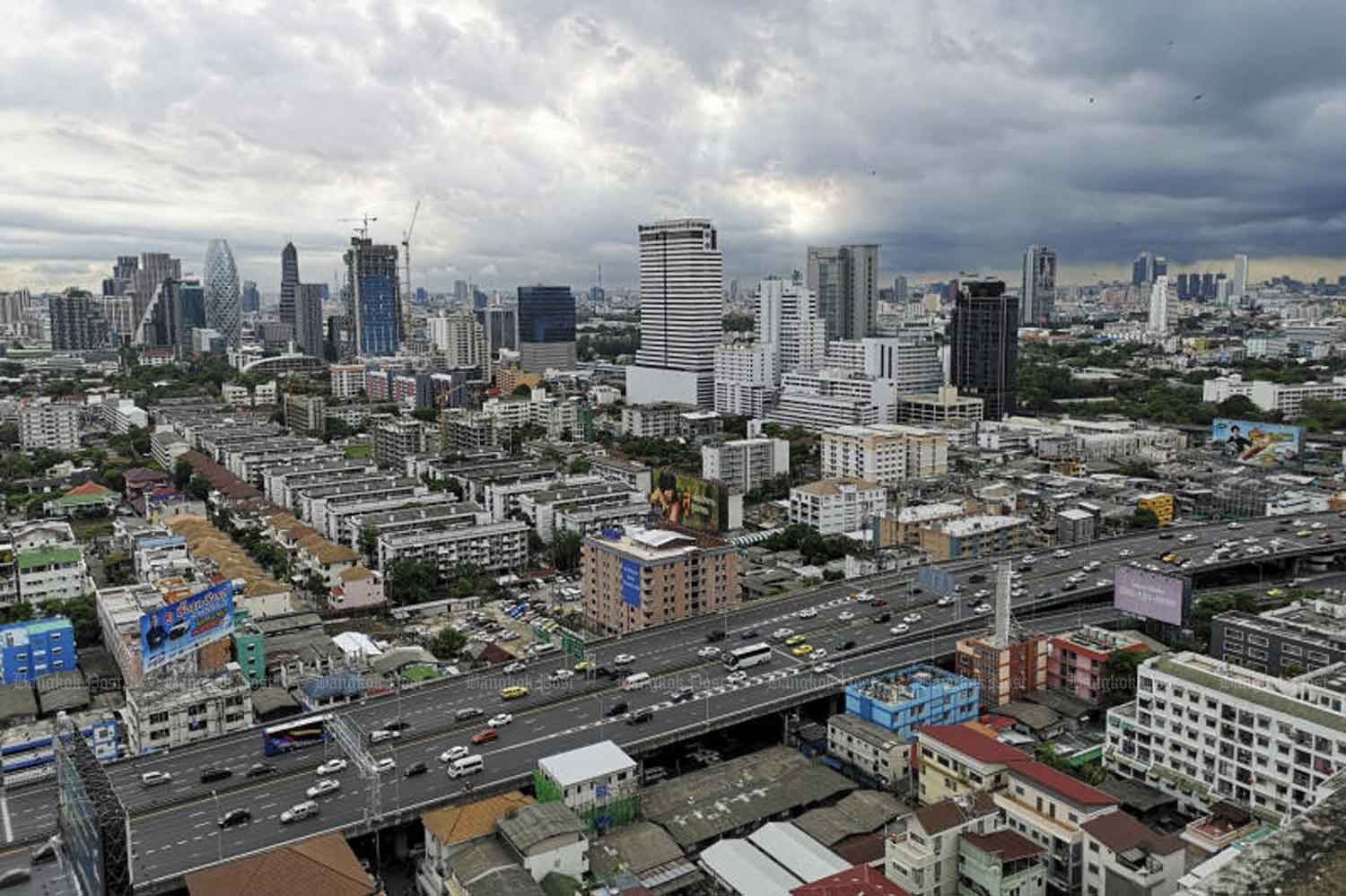No gains for Bangkok land
Bangkok land prices are expected to stay flat or drop this year for the first time in over a decade, largely because of the economic slowdown and the Land and Buildings Tax set to take effect early next year, say property analysts.
Aliwassa Pathnadabutr, managing director of property consultant CBRE Thailand, said there is an increasing number of landowners with a large amount of land stock offering their plots for sale.
“Some landlords who never thought about selling their plots might be affected by the current economic slowdown,” she said. “They are offering more negotiable deals or flexible prices.”
Peerapong Jaroon-ek, chief executive of SET-listed developer Origin Property Plc, said some landowners have returned to the company to resume land deals.
“So many plots have been offered to us,” he said. “A plot on Surawongse Road used to be priced at 700,000 baht per square wah. Now it is offered at 500,000 baht.”
Ms Aliwassa said some landowners offered leasehold options to minimise new costs from the imminent tax.
According to the Land and Buildings tax, the tax rate for vacant land will range from 0.3-0.7%, with a rise of 0.3% every three years. For a one-rai vacant plot on Phloenchit Road, the tax rate will be 2 million baht per year.
With so many plots offered at more negotiable prices, land prices in Bangkok this year will drop by 5-10% from last year or be flat, for the first time since 2009 following the Hamburger crisis, said Ms Aliwassa.
According to CBRE, the average increase in land prices nationwide was around 2-3% per year and 5-6% for Bangkok. Land prices in Bangkok rose more than 10% per year during the past several years.
New appraisal prices for land take effect for four years starting from Jan 1, 2020.
They mark an average increase of 2.45% in Bangkok and 8.34% nationwide from the current appraisal prices, according to the Treasury Department.
“Last year landowners were able to ask any price, but they are more flexible this year,” said Ms Aliwassa. “This year will be a transitional period from a sellers’ market the past several years to a buyers’ market.”
She said the residential sector was significantly impacted by the economic slowdown as market growth in the past four years was driven by foreign demand.
Last year foreign buyers recorded 92 billion baht in property purchases, 43% of which came from Chinese buyers. When the Chinese market slowed down, the condo market slumped.
“TM30 immigration reporting requirements created problems for foreigners, chasing away some foreign investors from the condo market,” said Ms Aliwassa.
She anticipates the condo market slowdown will continue into next year as there are no positive signs that could reignite the market.
“Property incentives can help,” said Ms Aliwassa. “They should be aimed at the right target or be offered to those who are not affected by the new lending curbs and are able to take out loans.”
Property incentives should not be limited to housing priced at 1-2 million baht a unit as most of the target buyers have high household debts and are likely unable to get a mortgage loan, she said.


 English
English





